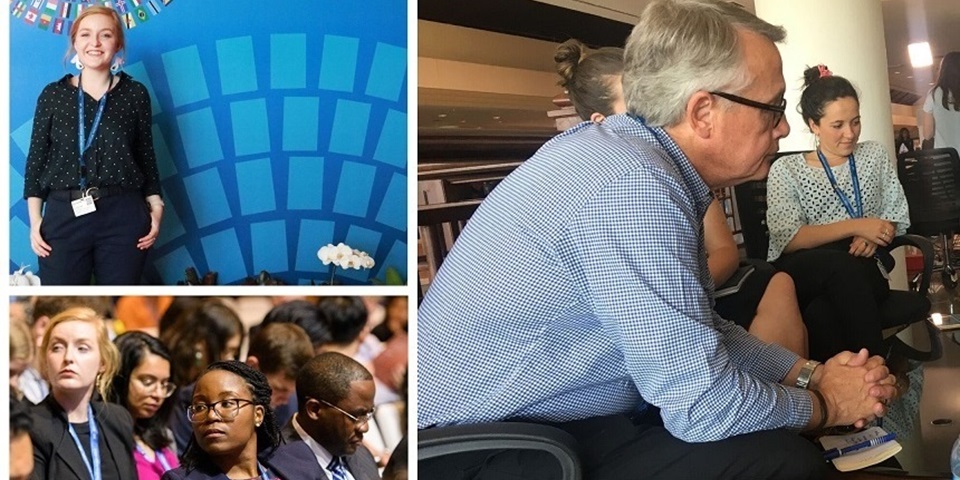Opinion
Young need voice at international tables

Young people simply do not attend major international finance conferences. There are few things that sound less enthralling to wide-eyed, passionate 20-somethings who want to make a difference in the world.
However, having just shipped my 24-year-old self to the Annual Meetings for the World Bank and International Monetary Fund in Indonesia last week, it strikes me that more young people should.
Global issues like climate change, societal inequality and disruptive technology are problems that extend far beyond the lifespan of those currently in power, making it crucial to have the next generation alongside them at the decision-making table. International development financing is, admittedly, a topic with a lot less sex appeal than gender equality or climate change action. Unfortunately, it’s also utterly crucial to taking action on everything else.
Young people bring uplifting, long-term global perspectives
Attending the World Bank and IMF Annual Meetings as a young person without a business/commerce background was an eye-opening experience. Over and over again, a simple point was raised that a lot of aspiring change-makers seem to have missed; there is not enough money to fund achieving the UN Sustainable Development Goals through international aid alone. This, quite simply, means that the private sector must also contribute significantly to their progress.
For young people, this means that it’s not enough to be passionate and to want things to change. It means that for that change to be realistic or achievable within the international system we have, you have to work incredibly hard to make change that is also commercially viable.
I realise that an international push towards commercialising international development has downsides – first and foremost, that only the ideas and projects that are considered profitable are also considered achievable. This has the potential to leave some of the most disadvantaged people in society behind. However, it also forces commercially viable projects to step up and stop relying on government funding. As funding is in limited supply, this leaves more funding available for those worthwhile projects that do not, or simply cannot, draw a profit - such as providing care for those with profound disabilities.
We hear a lot about start-ups and businesses needing to be ‘lean’ and ‘agile’, but there is no reason to suggest governments, banks, and international development organisations shouldn’t be so as well.
Enter the next generation. In my opinion, young people bring a unique perspective to the international table, and they bring one that isn’t just a longer-term outlook on the world. They also bring malleable, creative minds to organisations, cultures, and individuals that have often become entrenched in their own opinions and perspectives. In this regard, international finance needs young people as much as young people need international finance.
Climate change and gender equality
Although there are many passionate and engaged youth attendees at other international conferences discussing climate change and gender equality, the World Bank / IMF seems to miss out. As an organisation that controls a lot of the funding decisions for other development projects, this means that youth are on the sidelines of the decision-making process, and aren’t sitting in the same room.
However, at international conferences and meetings such as the World Bank / IMF Annual Meetings, young people find themselves with a very interesting opportunity. Firstly, there are very few other young people in attendance. Second, the rest of the attendees are – by comparison – big wigs. This means there is very little competition for space and discussion. The World Bank community openly welcomed the presence of the few young people that were in attendance, and many high-profile individuals were happy to stop and chat, take pictures, and sit down for meetings with myself and the rest of our delegation. This opportunity to engage directly with those in power is quite unique, and something that I wish more young people were able to experience.
Ultimately, if we want organisations such as the World Bank and IMF to be making decisions that are in the long-term interests of our planet and its people, that means we need to get young people in the same room, and for them to join the decision-making process. If you’re reading this, I implore you to help us get there.
Darcy Nidd is a Public Policy Master’s student at Murdoch University. She attended the World Bank / IMF Annual Meetings with Global Voices, funded by a scholarship from Mal and Karyl Nairn.
Opinion
Young need voice at international tables
Posted on